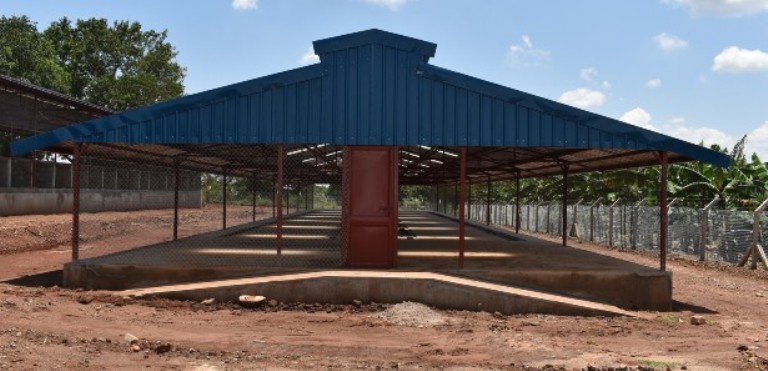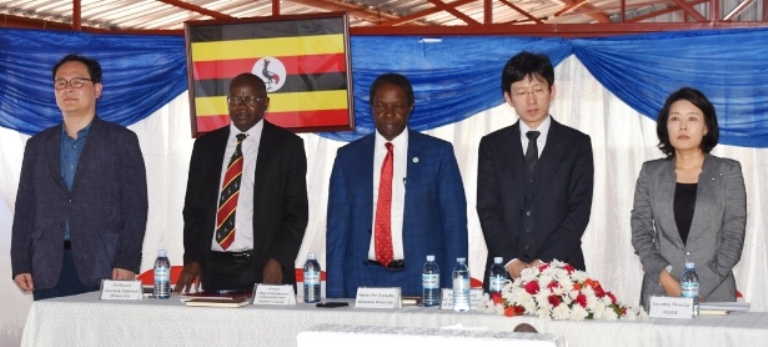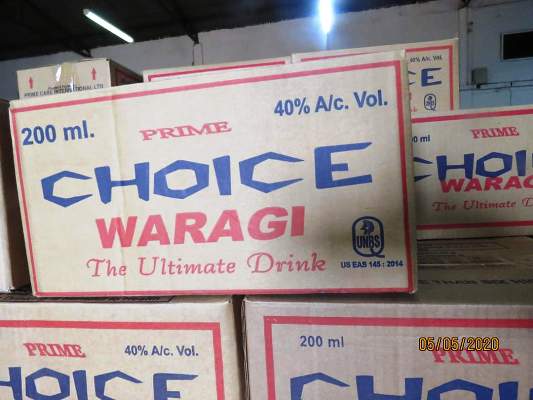Makerere University College of Agricultural and Environmental Sciences (CAES) has opened up a modern poultry unit at the Makerere University Agricultural Research Institute Kabanyolo (MUARIK) worth US$3 million (Shs11.3bn), the University has said.
70% of this budget is funded by the Korean International Cooperation Agency (KOICA) and another 30% by Eagle Vet. Additionally, Shinhan A-Tech is funding 30% of the horticultural enterprise.
The opening day workshop was held on Thursday, 30th August 2018 at MUARIK following 90% completion of the construction work. Construction commenced on 30th May 2018 and is expected to be complete by 30th September 2018.
The function was attended by the Country Director KOICA, Professors of Chonbuk National University (CBNU), the Chief Director, Eagle Vet Uganda, the Director KOPIA and the President, Korean Community in Uganda among others.
Makerere University was represented by the Deputy Vice Chancellor in charge of Finance and Administration (DVCFA) Prof. William Bazeyo, CAES Principal Prof. Bernard Bashaasha, his Deputy Dr. Gorettie Nabanoga, staff from Makerere and other universities as well as farmers.
This development comes after Makerere University and Chonbuk National University’s International Agriculture Development and Cooperation Center (IADCC) signed an agreement in May 2016 to implement the KOICA (Inclusive Business Solutions) IBS Project.

Makerere University allocated part of the university farm land; totaling 4.2 acres, to the project. The project has constructed three (3) poultry units with a capacity of five thousand (5000) birds each, implying a total capacity of 15,000 birds. The focus is mainly on layers for egg production.
Additionally, a brooder house was constructed to raise chicks as well as a drying shed for dehydrating chicken manure. A microbial facility to grow micro organisms to be used in the fermentation of chicken manure has also been constructed. This will provide readily available organic chicken fertilizer to farmers hence strengthening the linkage between crop and livestock production.
The project intends to contract farmers that will supply raw materials like maize and soybean to process feeds for chicken. These inputs will be bought at higher prices to increase farmers’ income.
The project will also construct a six hundred square meter (600m2) greenhouse that will produce quality tomatoes.
Additionally, the project will train farmers on improved agricultural technologies at National Farmers Leadership Center and also share 30% percent of the profits with farmers.
In his congratulatory message, the Korean Ambassador to Uganda represented by Lee Jun-hee appreciated the project partners for the accomplishments so far, saying this will contribute to Uganda Vision 2040 of transforming the country from peasantry to a middle income status.
The Ambassador noted that Uganda’s agricultural sector employs 2/3 of the household labour force and accounts for 77% of poverty reduction.
“Despite this, agriculture in Uganda is underdeveloped and its contribution to NGDP has declined to 25% with less economic gains due to unsustainable use of resources,”
He said, besides accelerating commercialization of agricultural products, private enterprises and research institution must pool together resources to fight poverty and improve livelihoods.
In his remarks, Prof. William Bazeyo commended the Principal CAES Prof. Bernard Bashaasha for not being selfish.
“Many of us have studied from outside but what have we brought back home? I thank Prof. Bashaasha because without his thinking and not being selfish, these Korean colleagues would not be here. Prof. Bashaasha went and found that there is potential in Korea to bring to Uganda”. Bazeyo said.





